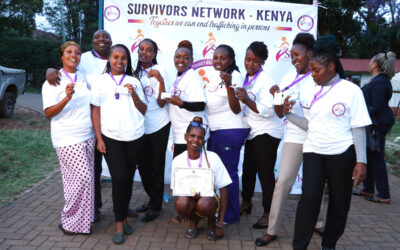The Human Trafficking Legal Center in the U.S. has a saying: “When survivors have lawyers, survivors have rights.”
That’s the key message that staff attorney Sarah Bessell brought to India for a workshop coordinated by her center, the Institute of Social Studies in New Delhi and Free the Slaves. “There are a broad range of remedies available for trafficking victims,” Sarah stressed.
The overall objective of the workshop was for participants to discuss international strategic litigation to combat human trafficking. The goal was to identify legal strategies to hold traffickers accountable and secure compensation for trafficking survivors. The workshop focused on international and extra-territorial legal remedies – emphasizing victim-witness preparation, victim-witness representation, civil litigation and compensation for survivors. It provided an opportunity to share expertise among legal professionals, paralegals, case managers and civil society organizations focused on strengthening the rule of law and access to justice for modern slavery survivors.
Sarah helped the group discuss the nuts and bolts of building an international case, including collection of evidence, pretrial discovery procedures and presentation of evidence at trial. The group discussed two important types of cases: legal options for migrant workers returning to India who have been trafficked in another country, and legal options for individuals in forced labor inside India who are producing goods for export – especially in the carpet, brick and textile sectors. She noted that strengthening the rule of law goes beyond criminal prosecution by police.
“There is a lot of interest on the supply-chain litigation process, which we hope to take forward,” Sarah said.
Learn more about our program in India here.



